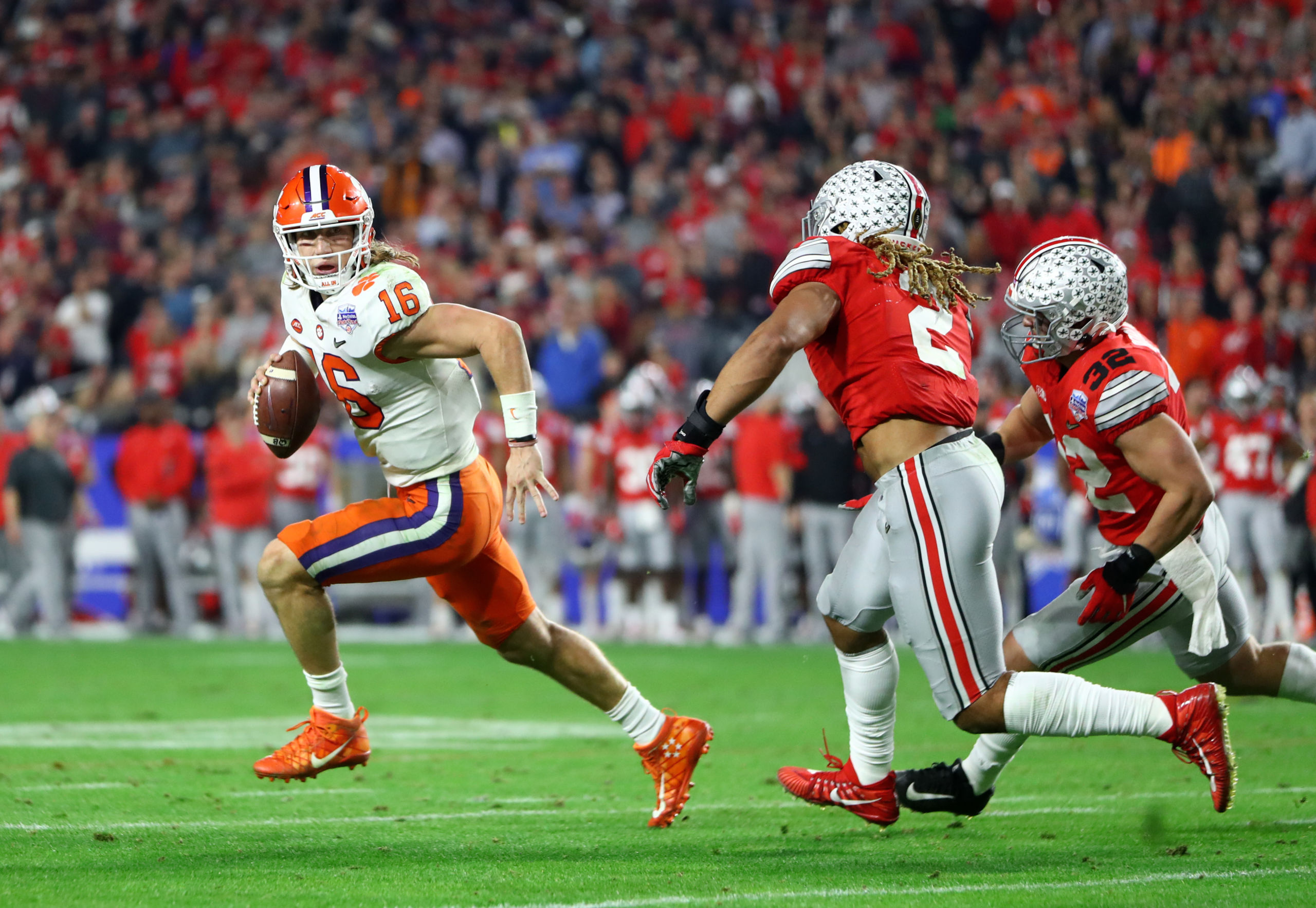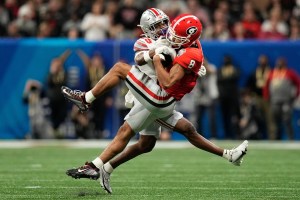EA Sports College Football, one of the most highly-anticipated products of the name, image, and likeness era, is facing yet another hurdle. A second organization has come against the deal EA Sports offers athletes to be represented in the 2024 iteration of the college football video game — the first in a decade.
The Brandr Group, representing 50% of athletes eligible to be in the EA Sports College Football game, is “concerned about several aspects” of the deal being offered to athletes, CEO Wesley Haynes said in a statement.
“It appears to be a fraction of maybe what fair market value would be,” Haynes elaborated to Front Office Sports.
EA Sports and The Brandr Group had discussions last year about the possibility of working together. At the time, The Brandr Group voiced concerns about the proposals shared, Haynes said.
Ultimately, EA did not opt to work with The Brandr Group. OneTeam Partners, another group licensing company, was contracted to help facilitate deals.
The team is offering athletes the agreements that Haynes believes did not include an athlete’s voice (or representation) at the negotiating table.
- EA Sports is offering athletes $500 each and no royalties, On3 reported.
- Schools will receive about 10% in royalties, Haynes said, which is similar to what pro teams or leagues receive in these types of deals.
Haynes noted that offering royalties to athletes is the industry standard — particularly because it’s where the bulk of revenues come from. If EA Sports isn’t doing this, it’s offering contracts to players that are nowhere near as fair as what’s routinely offered to pro athletes. Haynes is also concerned with certain exclusivity requests EA is making — particularly by prohibiting athletes from using their NILs on other “similar” products.
The Brandr Group is not privy to the specific contract, but received details on its contents from schools concerned about how little athletes are being offered.
However, as details of the deal are not being released, an EA Sports representative said the concerns are based purely on speculation. The representative said schools expressed positive thoughts to EA about the deal’s terms.
But the Brandr Group isn’t the only one criticizing the terms — at least based on what’s been reported. Last week, an outside college athlete advocacy organization called The College Football Player’s Association also came out saying athletes are being compensated less than they deserve for participation in the video game. Executive Director Jason Stahl told FOS he would advise athletes to look further into the deal and decide whether deciding not to opt-in would be better.
The conundrum illustrates the current issue with group licensing deals in college sports — since there’s no formal college athlete union, there’s no guarantee that athletes’ voices will be at the negotiating table. In the pros, players’ unions negotiate these types of deals.
So while companies can offer group licensing deals for athletes to opt into, it’s up to athletes to decide if those deals are worth it.
This story has been updated with information from an EA Sports representative.







![[Subscription Customers Only] Jun 15, 2025; Seattle, Washington, USA; Botafogo owner John Textor inside the stadium before the match during a group stage match of the 2025 FIFA Club World Cup at Lumen Field.](https://frontofficesports.com/wp-content/uploads/2026/02/USATSI_26465842_168416386_lowres-scaled.jpg?quality=100&w=1024)
![[Subscription Customers Only] Jul 13, 2025; East Rutherford, New Jersey, USA; Chelsea FC midfielder Cole Palmer (10) celebrates winning the final of the 2025 FIFA Club World Cup at MetLife Stadium](https://frontofficesports.com/wp-content/uploads/2026/02/USATSI_26636703-scaled-e1770932227605.jpg?quality=100&w=1024)









